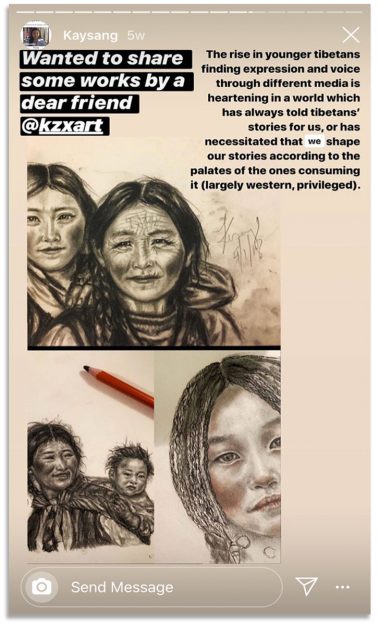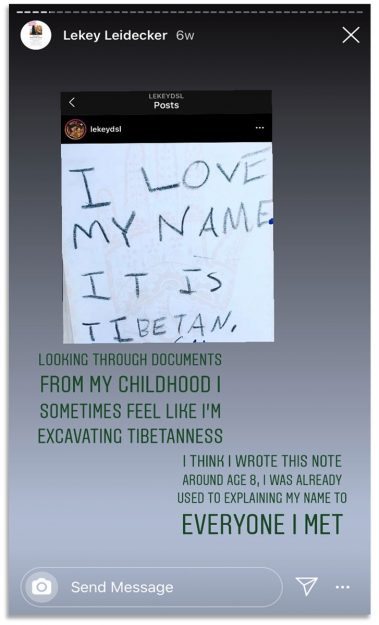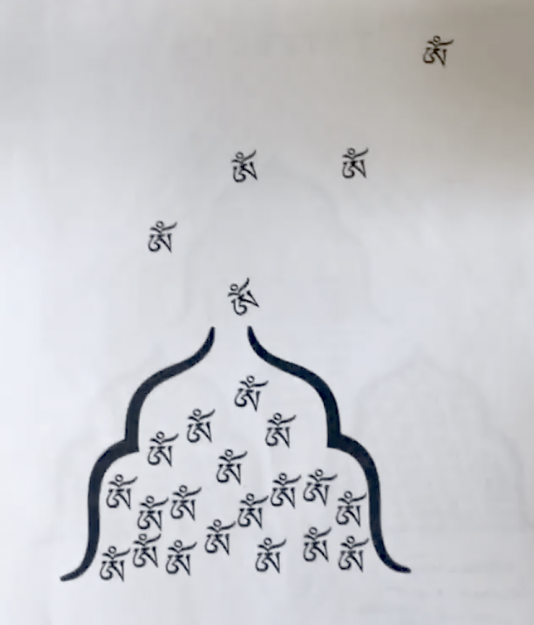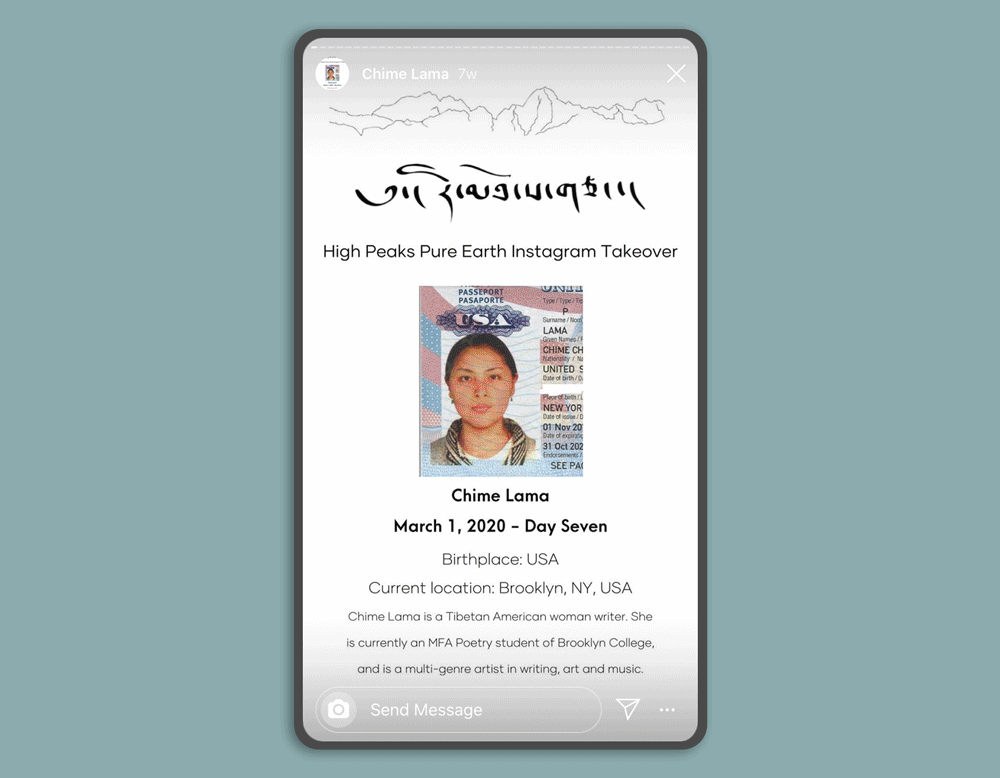‘My mother built a story of tribes and raised me in it,” writes poet Tsering Wangmo Dhompa. “I memorized the names of people, rivers, and mountains. I promised to serve them when we met. Their absence did not mean they did not exist somewhere else.”
Dhompa shared this excerpt from a work-in-progress as part of an Instagram Stories takeover in late February by Tibetan women poets arranged by High Peaks Pure Earth, a media outlet that provides commentary on Tibet-related news and issues.
Tibetan writing accessible to English-speakers has historically represented privileged voices—and many stories about Tibet that have entered mainstream consciousness are often not written by Tibetans at all. But in recent years, social media has been making conversations among Tibetans across the world visible and accessible to Tibetans and non-Tibetans alike.
During the High Peaks Pure Earth takeover, seven Tibetan women poets—Chime Lama, Kaysang, Lekey Leidecker, Sonam Tsomo Chashutsang, Tenzin Dickie, Tsering Wangmo Dhompa, and Tsering Woeser—shared their poetry and personal reflections, as well as their daily routines, writing prompts, poets that inspire them, and how they deal with imposter syndrome.
 While many of the poets who participated in the takeover regularly explore themes of diaspora and displacement in their work, some have expressed frustration that the “Tibetan experience” is often portrayed as a singular one. But representations of Tibetan culture and experience are becoming more nuanced as Tibetans connect virtually on Instagram, Facebook, podcasts, and even the video sharing app TikTok. “Just seeing how young Tibetans are doing that self-exploration and turning our view inward, that brings me joy,” said poet Kaysang.
While many of the poets who participated in the takeover regularly explore themes of diaspora and displacement in their work, some have expressed frustration that the “Tibetan experience” is often portrayed as a singular one. But representations of Tibetan culture and experience are becoming more nuanced as Tibetans connect virtually on Instagram, Facebook, podcasts, and even the video sharing app TikTok. “Just seeing how young Tibetans are doing that self-exploration and turning our view inward, that brings me joy,” said poet Kaysang.
During her takeover, poet Lekey Leidecker drew attention to how difficult it was for her to trust the value of her own voice. She pointed to her struggle with imposter syndrome, the feeling that one’s success is not deserved. Writers of marginalized identities “can stop themselves before anyone else does, or before they even start, by thinking their work is not good enough,” she said.

“One of the reasons I began writing is because I feel like it’s important to narrate our experiences, and I definitely noticed and still notice an absence of Tibetan voices on Tibetan topics,” Leidecker shared during her takeover. She believes that the more Tibetans share their voices, the more nuanced and diverse the understanding of Tibetans will become, she later told Tricycle by phone. Leidecker, who was born and raised in Kentucky, said, “I should be able to tell the story of myself, and I’m Tibetan, so [my story] is a Tibetan story. At the same time, I don’t speak for other Tibetan people. I don’t claim to have the experiences that they’ve had.”
Chime Lama translates poetry from Tibetan to English to help make the long tradition of Tibetan literature more accessible to English speakers. During her takeover, Lama, who trained as a textual translator at the University of Chicago, shared her own poems—some in English and some in Tibetan. Lama is particularly interested in concrete poetry, a style in which a poem’s visual orientation conveys part or most of its meaning. Lama’s concrete poems, even when written in Tibetan, can be accessible to speakers of all languages.

Not all of the poems shared during the takeover explored Tibetan heritage or culture. But all of the poets who participated expressed that their being Tibetan influenced their work anyway.
“I am a Tibetan woman,” said Kaysang. “That is huge in my own consciousness; I cannot hide from that.”
You can view the original posts from the poets’ takeover on High Peaks Pure Earth’s Instagram Highlights.
Thank you for subscribing to Tricycle! As a nonprofit, we depend on readers like you to keep Buddhist teachings and practices widely available.
